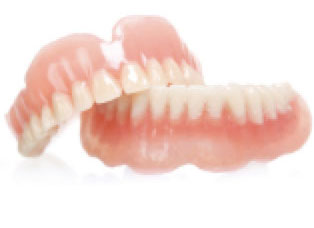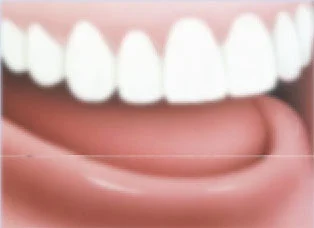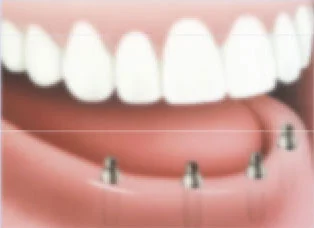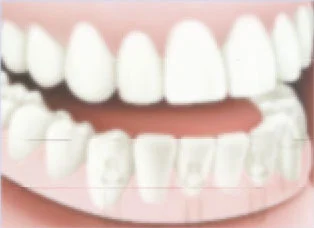- Removable Partial Dentures
- Tooth Extraction: Post-Operative Instructions
- Your Wisdom Teeth
- Taking Care of Your Teeth and Gums
- Basic Flossing
- Do You Have a Cracked Tooth?
- Periodontal Disease: Your Complete Guide
- Basic Brushing
- Periodontal Disease: Keep Your Gums Healthy
- Fluoride: Nature's Cavity Fighter
- Hate To Floss? 3 Other Ways to Clean Between Your Teeth
- Handling Your Child's Dental Emergency
- Get the Facts about Mouth and Throat Cancer
- Oral Health and the HPV Vaccine
- Do You Grind Your Teeth?
- Tooth Decay in Baby Teeth
- Do You Have Sleep Apnea?
- Your Single Tooth Implant
- Your Child's Teeth
- Tobacco and Oral Health
- Seal Out Decay
- Temporomandibular Disorders (TMD)
- Healthy Smiles for Mother and Baby
- Healthy Mouth, Healthy Body: Making the Connection
- Baby Teeth: When They Come In, When They Fall Out
- Thumb Sucking, Finger Sucking and Pacifier Use
- Sip and Snack All Day? Risk Decay!
- 3 Tooth Replacement Options
- Tooth Erosion
- Tooth Decay
- Treating Cavities
- Should You Take Antibiotics before Your Dental Treatment?
- Mouthguards and Sports Safety
- Gum Recession Causes and Treatments
- Dental X-Ray Exams
- Diabetes and Your Oral Health
- Scaling and Root Planing
- Pregnancy and Oral Health
- Your Dentures
- Your Child's First Visit to the Dentist
- Root Canal Therapy Can Save Your Tooth
- Periodontal Disease - Don't wait until it hurts
- Why Do I Need a Bridge?
- Why Do I Need a Crown?
- Your Smile - An Owner's Manual
- Dental Sealants Protecting teeth, preventing decay
- Happiness is a Healthy Smile
- Dental Veneers - Improve Your Smile
- Tooth Whitening for a Brighter Smile
- Why Baby Teeth Are Important
- Dry Mouth
- Sealant Quick Reference
- Caries en Dientes de Leche
- Why Doesn't My Insurance Pay for This?
- Periodontal Maintenance: Stay on Top of Gum Disease
- Flossing Quick Reference
- Brushing Quick Reference
- Your Child's Teeth: Ages 6–12
- Your Child's Teeth: From Birth to Age 6
- Dental Implants: Are they an option for you
- Mouth Sores and Spots
- Sipping, Snacking and Decay
- Improving Your Smile
- Your Child's First Dental Visit
If you lost some or all of your natural teeth, dentures can replace your missing teeth. Dentures can be made to look like your natural teeth and can make eating and speaking easier. They can also support your cheeks and lips so facial muscles don’t sag.
Types of Dentures
There are several types of dentures available and different things to consider for each. This brochure covers three denture options.
Conventional complete dentures have replacement teeth fitted into a plastic base. The base is made to closely match the color of your gums. Any natural teeth you may have will need to be removed before your dentures are placed.
- A conventional complete denture is made and placed in your mouth after any remaining teeth are taken out and the tissues have healed. Healing may take several months. In some cases, your dentist can make an immediate denture for you to wear during this healing period.
- The base of the upper denture covers the palate (the roof of your mouth), resting against your gums and palate. Saliva helps create a tight seal to hold the denture in place.
- The lower denture has a horseshoe shape so there is room for your tongue and muscle attachments. It rests on the gum and bone tissues of your dental ridge.
- Conventional complete dentures can be put in and taken out as needed.
Implant-supported complete dentures are attached to dental implants. Implant-supported dentures require that all your natural teeth be removed. If teeth are removed, your mouth will need to heal before this type of denture can be placed, which could take several months. In some cases, your dentist can make an immediate denture (see below) for you to wear during this healing period.
- Many people find that implant-supported dentures are more stable, comfortable, and secure than conventional dentures.
- Implant-supported dentures are not removable, except by a dentist or oral surgeon.
Not everyone should get implants. This type of denture requires surgery, so you must be in good health and have enough bone to support the implants. Ask your dentist if you are a good candidate for dental implants.
Immediate dentures may be an option for some people. These dentures are made before the remaining teeth are removed. Once the denture has been made, your dentist removes your teeth, and the immediate denture is placed right away.
-
With immediate dentures, you do not have to go without teeth
during the healing time. Once healing is complete, the denture may
need to be adjusted or relined. Sometimes a new denture needs to
be made.

Conventional complete dentures

Implant dentures

Implants placed in the jaw

Denture fitted over implants
Getting used to your denture may take some time
Adjusting to Your New Dentures
- It is normal for your denture to feel odd or bulky for the first few weeks. Keep wearing your denture until you get used to it.
- The lower denture may feel loose until your cheek and tongue muscles learn to hold it in place.
- You may have extra saliva for a short time.
- Some soreness should be expected for the first week or two. Call your dentist if you develop a sore or irritation that does not go away. Your denture may need to be refit.
- Your dentist will check on your progress and make any adjustments needed to make you more comfortable.
Eating with Your New Denture
- Early on, you may have trouble eating with a new denture. Begin by eating soft foods cut into small pieces.
- Chew on both sides of your mouth to keep the pressure even.
- Do not chew gum or eat very sticky or hard foods.
Talking with Your New Denture
- You will also need to practice talking with your new denture. Try reading out loud and repeating tricky words in front of a mirror.
- Talk slowly to prevent muffled speech.
- If your denture slips out of place when you laugh, cough, or smile, bite down and swallow to reposition it.
Giving Your Denture a Break
- When you get new dentures, your dentist may tell you to wear them most of the time. Dentures should not be worn 24 hours a day, unless recommended by your dentist during the adjustment period.
- Your dentist may tell you to take them out when you go to bed and put them back in when you wake up.
- Wearing your denture around the clock can cause the tissues in your mouth to become irritated.
Denture Adhesive
Your dentist may tell you to use a denture adhesive as you get used to wearing your denture. However, a denture that fits correctly usually only needs saliva to create a tight seal that holds it in place.
Denture adhesive can help with a loose-fitting denture for a short time, but if you need to use adhesive all the time, it may be because your denture doesn’t fit correctly. A poorly fitting denture may cause irritation, mouth sores, and bone loss. If your denture is loose, have your dentist check it. If you are using an adhesive, make sure you follow the instructions for use.
You Must Still Take Good Care of Your Mouth
Even if you wear dentures, it’s important to take good care of your mouth.
Brush your gums, tongue, and the roof of your mouth twice each day with a soft-bristled brush before you put in your denture. Eating a balanced diet is also important to keep your mouth healthy.
You will still need regular oral exams by your dentist even after you have lost your natural teeth. During a visit, your dentist will look for signs of disease such as fungal infections (also called thrush), oral cancer, or cancer of the head and neck. Your dentist will also check to see if your dentures fit well or need adjustments.
Caring for Your Denture
Like natural teeth, you must take good care of your denture. Plaque and stains can still form on dentures. Here are some tips on how to care for your denture:
Clean your denture every day. Take it out of your mouth and rinse off food particles. Use a special brush made for cleaning dentures or a toothbrush with soft bristles. Brushes with hard bristles can scratch the surface of the denture. Wet the brush and, if you like, you may use a nonabrasive denture cleanser paste to gently clean all surfaces of the denture. You may also submerge your denture in a solution containing denture cleanser for the recommended time.
- Do not use toothpaste to clean your denture. Some toothpastes have abrasive particles that can damage the denture base and teeth. Brush with a nonabrasive denture cleanser instead.
- Keep your denture in water or in a specially made denture soaking solution when you are not wearing it. This will help your denture keep its shape.
- Rinse your denture well after using any denture cleanser. The cleanser may contain chemicals that should not go in the mouth.
- Look for denture cleansers with the American Dental Association Seal of Acceptance, a symbol of safety and effectiveness.
Be careful when handling your denture. It is delicate and can break if dropped. When removing, handling or cleaning it, try to stand over a sink covered with a towel or filled with cool water in case it falls. Keep your denture away from children and pets when you are not wearing it.
Don’t Try to Adjust Your Denture Yourself!
Your dentist is the only person who should make repairs to your denture. Trying to make your own adjustments can harm your denture and your mouth. Don’t use over-the-counter reline materials or glues on your denture. They may contain harmful chemicals and aren’t a long-term solution for fixing your denture.
Denture Replacements
The normal lifetime of dentures is about 5 to 10 years, but this can vary widely depending on the patient. Your gumline and dental ridge will continue to change in shape and shrink, even if you wear dentures. Over time, dentures may need relining, rebasing, or replacing.
Relining is when your dentist adds new material to the underside of the denture base to fit to your gums.
Rebasing is when a new base is made using your existing denture as a model. The artificial teeth from the old denture are used on the new base.
It’s important to replace worn or ill-fitting dentures before they cause problems. Your mouth changes naturally with age. Your jaws may line up differently as bones and gum ridges recede and shrink. At some point, your dentures might not fit well and may need to be remade. Your dentist will let you know when it’s time to replace your dentures.
ADA Healthy Smile Tips
- Brush your teeth twice a day with a fluoride toothpaste.
- Clean between your teeth daily.
- Eat a healthy diet that limits sugary beverages and snacks.
- See your dentist regularly for prevention and treatment of oral disease.
For more information about taking care of your mouth and teeth, visit MouthHealthy.org, the ADA’s website just for patients.
Produced in cooperation with the American College of Prosthodontists
Visit Our Office
Office Hours
- MON8:30 am - 5:00 pm
- TUE8:30 am - 5:00 pm
- WEDClosed
- THUClosed
- FRI8:30 am - 5:00 pm
- SAT9:00 am - 2:00 pm
- SUNClosed